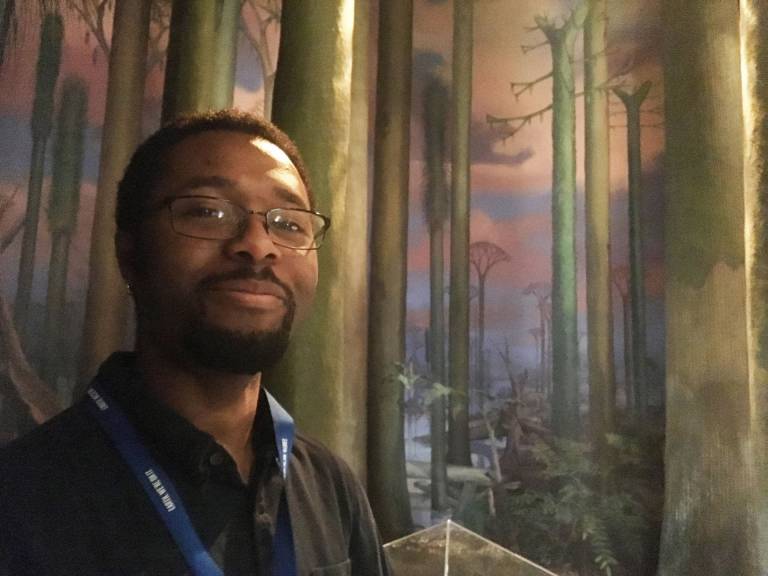We delve into the research of Ben Otoo, PhD student at the University of Chicago who participated in our Black History Month event. We’ve followed up with him to learn a bit more about his research.
Ben’s PhD is in Evolutionary Biology – the study of processes that resulted in the breadth of life we see on Earth today. He has already received a number of awards relating to his work including the Geology Department Award of Distinction and Dean of Faculty Research Award from Amherst College, as well as the Superior Achievement Scholarship Award from the National Association of Black Geologists and Geophysicists.

Ben researches early tetrapods - vertebrate creatures with two pairs of limbs (these include mammals, and even humans). But Ben’s making discoveries about way back, hundreds of millions of years ago, discovering how these creatures evolved following a major event called the ‘end-Devonian extinction’. Studying their anatomy, and reconstructing the development of their food webs, he hopes his work will provide new information on the ecosystem changes that happened as the first creatures moved from water to also living on land.
Like many black Earth Scientists, his career hasn’t been without barriers. Ben commented in a Guardian article on the stereotypes around Geologists as white, rugged men that
““You can get by, but you have to bring your own oxygen, so to speak.”
This perspective forms an intriguing analogy with his research into the development of conditions supporting the evolution of the diverse lifeforms we find on Earth today. Black scientists are underrepresented in the Earth Sciences (e.g. [1], [2]). If we wish to support talented, diverse scientists with huge contributions to make across these fields, but who may currently feel they don’t fit the mould, we will need to provide that ‘oxygen’ - transforming our departments, our systems and ourselves.
We asked Ben, “What would you most like to see achieved during the rest of your career?” He told us:
“Scientifically, I'd most like to see the study of early tetrapods (and early vertebrates more generally) encompass more of a paleobiological approach as well as a more paleobiological perspective; we're at the point where we have - and will be getting - enough information to move past the prior models and assumptions of the fish-tetrapod/fin-limb/water-land transitions. More broadly, I'd like to see the field become more humane; there are lots of people who do great work, and even more who could do great work, but the social and material conditions (both within and without their institutions/places of work) make it a really grinding and painful experience for too much of the time.”
 Close
Close

